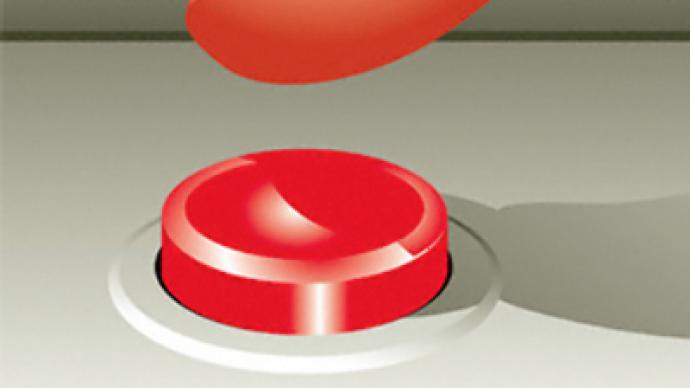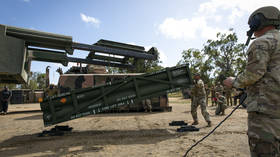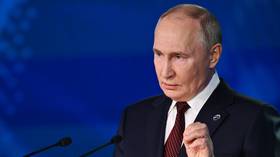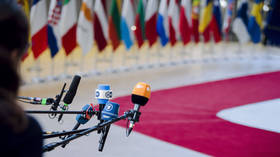US State Department did not push “reset” button

The Foreign Ministry has harshly criticized the US State Department’s report on advancing democracy in Russia, saying that it is based on double standards and does not comply with the “reset” policy.
“There is an impression that, despite the ‘reset’ in Russian-American relations, the attitude [to Russia] of the US Department staff who worked on the report has not changed,” the Russian Foreign Ministry said.
The annual US Report on Advancing Freedom and Democracy is an American view on the situation with democracy and human rights and its efforts to promote both in, as it says, “non-democratic countries and countries undergoing democratic transitions worldwide”, including Russia.
“With regard to Russia, the traditional set of points on ‘erosion’ of democracy in our country has been used,” Moscow commented in a statement published on the foreign ministry’s website on Tuesday.
Firing back at the statements made in the document, the ministry noted that “it does not fail to mention a list of ‘good deeds’ of the American administration for the sake of Russian people, many of which are on the verge of interfering into internal affairs.” Among such “deeds”, the foreign ministry named “the training of ‘independent election observers’, attempts to foster so-called independent power structures in provinces, the lobbying of ‘needed’ legal initiatives, and so on.”
At the same time, Moscow noted, “whenever an opportunity occurs, our partners do not shy away from claiming that Russian programs on support of compatriots living abroad are political provocations that have to be chased and stopped.”
In fact, Moscow states, the document is a report on spending budget funds that were allocated to the US State Department, and a way for American diplomacy to show they are not spending money in vain. The question is why, despite growing financial inflows, there has been no significant progress – as the Department states – in the so-called problematic countries.
“We believe that the contents of the report prove the fallaciousness of the very principle ‘who is not with the US is not democratic’ which is, in fact, exactly the criteria for assessing the situation in some countries,” the statement reads.
The ministry added that there cannot be two identical democracies. And “the path to democracy, a direction for democratic development, is chosen by the people living in a country, not by the US Department of State.”
Russia, for its part, is open for “a constructive dialogue based on mutual respect, but not for lectures and morals on how to build true democracy.”
“Subjective judgments over what is going on in Russia made by some high-ranking US officials and based on double standards can hardly be considered appropriate,” the ministry said.
Russia is going to solve arising problems as the state and society develop “independently and on the basis of democratic choice that our country has made for itself once and for ever.”
The Russian Foreign Ministry recommended their American colleagues to pay more attention to their “own problems with observing human rights, including general rules of international law on the matter.”
“We value good relations with the US,” the foreign ministry said. “We believe that it is time to leave the past and abandon practices that do not correspond with the new character of our cooperation.”
There have been and will be differences in approaches to some issues, the ministry said. “However, it is important not to make them a matter of political conjuncture but to consider them in a spirit of constructive criticism and recommendations, based on respect for each other’s positions,” Moscow concluded.












